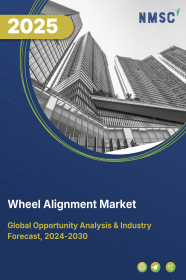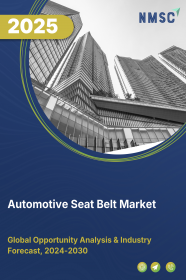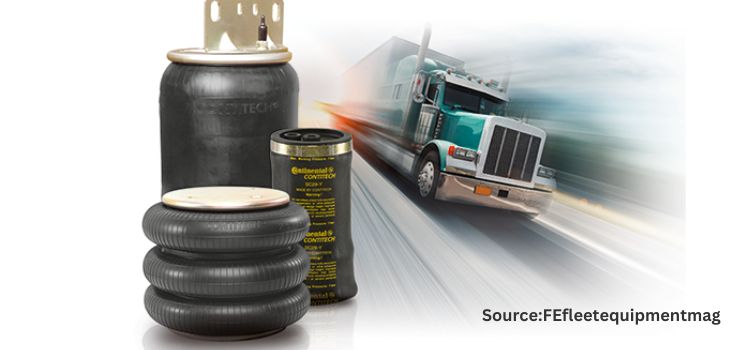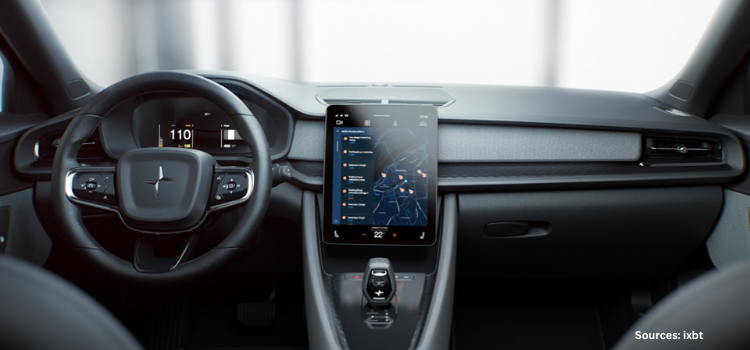
Wheel Alignment Market by Vehicle Type (Passenger Vehicles, Commercial Vehicles, Electric Vehicles (EVs), Motorcycles and Two-wheelers and Heavy-duty Equipment), by Alignment Type (2-Wheel Alignment, 4-Wheel Alignment and Specialized Alignment), by Service Type (Manual Alignment, Computerized/Robotic Alignment, Laser Alignment and Hybrid Systems), by Alignment Type (Front-End Alignment, and Others), by End-User (Automobile Manufacturers, and Others) - Global Opportunity Analysis and Industry
US Tariff Impact on Wheel Alignment Market
Trump Tariffs Are Reshaping Global Business
Market Definition
The global Wheel Alignment Market size was valued at USD 2.15 billion in 2021 and is predicted to reach USD 3.01 billion by 2030 with a CAGR of 3.8% from 2022-2030. Wheel alignment machine is an equipment that is used to adjust the suspension of vehicles in order to achieve an appropriate angle at which the tyres touch the road. It is done during assembly and also when wheels lose its alignment during operation.
Moreover, these machines are used for the inspection of the toe, camber, and caster to ensure accuracy of the wheels angle in comparison to each other and with the body of the vehicle. Wheel alignment machines are available with different features such as portability, wireless connectivity, and others. Various service providers have developed smart repair facilities for wheel alignment as large number of customers are paying attention to maintenance, repairing, and overhaul activities. Ensuring proper alignment of wheels improves longevity of tyres apart from optimizing the performance.
Market Dynamics and Trends
The demand for wheel alignment is rising due to increasing repair, maintenance, and overhaul operations in the automotive industry. In addition, factors such as increasing production and rise in affordability of vehicles among consumers are expected to propel the growth of the market during the forecast period.
Moreover, rising importance of accurate wheel alignment as it improves straight-line stability, reduces tyre wear, and provides better cornering performance, is expected to rise the demand of wheel alignment system and services market in the coming years.
However, lack of skilled labors, and significant capital requirement, for manufacturing wheel alignment machines are factors restraining the growth of the market during the forecast period. On the other hand, emergence of advanced technology and equipment such as introduction of modern CCD wheel aligners to get better results, is expected to create lucrative growth opportunities for the wheel alignment market players in future.
Market Segmentations and Scope of the Study
The wheel alignment market report has been segmented based on component, vehicle type, and geography. Based on the component, the industry is classified into system and services. By system, the market is further classified into toe- in / toe-out alignment system, camber alignment system, caster alignment system and four-wheel alignment system. By services the market is further divided into OEM, Franchise, Dealership Authorized and Others. Based on vehicle type, the market is classified into passenger vehicle and commercial vehicle. The passenger vehicles are further divided into hatchback, sedan, and SUV/MUV. The commercial vehicles are further divided into light commercial vehicle and heavy commercial vehicle. The geography breakdown and analysis of each of the aforesaid segments includes regions comprising of North America, Europe, Asia-Pacific, and ROW.
Geographical Analysis
Asia-Pacific holds the lion's share of global wheel alignment market and is expected to continue dominating the market during the forecast period. This is attributed to factors such as growing economies, increasing per capita income, and standard of living of the people in countries such as India, China, Thailand, and South Korea. Also, presence of major player such as Manatec Electronics in this region further boosts the market growth.
However, Europe is expected to show a steady rise in the market due to relatively high share of commercial vehicles, that require high maintains and directly favors the market in this region. In addition, there are presence of large number of tier-1 suppliers such as ACTIA Group, and Hofmann TeSys which offer advanced wheel alignment testing machines, is expected to propel the global market across the region in upcoming years.
Competitive Landscape
The wheel alignment industry comprises of various players such as Bridgestone Corporation, Continental AG, Ford Motor Company, General Motors, Goodyear Tire and Rubber Company, BMW AG, Robert Bosch GmbH, Toyota Motor Corporation, Volkswagen AG, Mahindra & Mahindra Ltd., MRF Limited, Hofmann USA, Hunter Engineering, Rotary Solutions, M&B Engineering srl. These manufacturers are actively indulging in R&D initiatives, product & technology innovations, and industrial collaborations to enhance their product and increase their growth and geographical reach.
For instance, in April 2022, Autel launced a new wheel alignment and ADAS calibration frame, the IA900WA. It is one of the first integrated ADAS calibration and four-wheel alignment systems offered at an affordable piece, globally.Also, in October 2020, Hunter Engineering company launched touch-less wheel alignment inspection system in India. It is one of the industry’s first ‘drive-through’ contactless wheel alignment inspection or diagnostic systems.
Key Benefits
-
The wheel alignment market report provides the quantitative analysis of the current market and estimations through 2022-2030 that assists in identifying the prevailing market opportunities to capitalize on.
-
The study comprises a deep dive analysis of the wheel alignment market trend including the current and future trends for depicting the prevalent investment pockets in the market.
-
The information related to key drivers, restraints and opportunities and their impact on the wheel alignment market is provided in the report.
-
The competitive analysis of the market players along with their market share in the wheel alignment market.
-
The SWOT analysis and Porters Five Forces model is elaborated in the study.
-
Value chain analysis in the market study provides a clear picture of the stakeholders’ roles.
Wheel Alignment Market Key Segments
By Vehicle Type
-
Passenger Vehicles
-
Sedans
-
SUVs
-
Hatchbacks
-
Crossovers
-
-
Commercial Vehicles
-
Trucks
-
Buses
-
Vans
-
-
Electric Vehicles (EVs)
-
Motorcycles and Two-wheelers
-
Heavy-duty Equipment
-
Agricultural Vehicles
-
Construction Vehicles
-
By Alignment Type
-
2-Wheel Alignment
-
4-Wheel Alignment
-
Specialized Alignment
-
Heavy-duty Vehicle Alignment
-
Performance Vehicle Alignment
-
By Service Type
-
Manual Alignment
-
Computerized/Robotic Alignment
-
Laser Alignment
-
Hybrid Systems
By Alignment Type
-
Front-End Alignment
-
Thrust Alignment
-
Four-Wheel Alignment
By End-User
-
Automobile Manufacturers
-
Aftermarket Services
-
Independent garages
-
OEM service centers
-
Others
-
-
Fleet Owners
-
Logistics companies
-
Delivery services
-
Transport companies
-
-
Do-It-Yourself (DIY)
By Geography
-
North America
-
The U.S.
-
Canada
-
Mexico
-
-
Europe
-
The UK
-
Germany
-
France
-
Italy
-
Spain
-
Denmark
-
Netherlands
-
Finland
-
Sweden
-
Norway
-
Russia
-
Rest of Europe
-
-
Asia-Pacific
-
China
-
Japan
-
India
-
South Korea
-
Australia
-
Indonesia
-
Singapore
-
Taiwan
-
Thailand
-
Rest of Asia-Pacific
-
-
RoW
-
Latin America
-
Brazil
-
Argentina
-
Chile
-
Uruguay
-
Rest of LATAM
-
-
Middle East
-
Saudi Arabia
-
Qatar
-
Israel
-
Iran
-
Rest of Middle East
-
-
Africa
-
Morocco
-
Egypt
-
South Africa
-
Algeria
-
Other African Countries
-
-
Key Players
-
Bridgestone Corporation
-
Continental AG
-
Ford Motor Company
-
General Motors
-
Goodyear Tire and Rubber Company
-
BMW AG
-
Robert Bosch GmbH
-
Toyota Motor Corporation
-
Volkswagen AG
-
Mahindra & Mahindra Ltd.
-
MRF Limited
-
Hofmann USA
-
Hunter Engineering
-
Rotary Solutions
-
M&B Engineering srl
Report Scope and Segmentations:
|
Parameters |
Details |
|
Analysis Period |
2021–2030 |
|
Base Year Considered |
2021 |
|
Forecast Period |
2022–2030 |
|
Market Size Estimation |
Billion (USD) |
|
Market Segmentation |
By Vehicle Type (Passenger Vehicles, Commercial Vehicles, Electric Vehicles (EVs), Motorcycles and Two-wheelers and Heavy-duty Equipment), by Alignment Type (2-Wheel Alignment, 4-Wheel Alignment and Specialized Alignment), by Service Type (Manual Alignment, Computerized/Robotic Alignment, Laser Alignment and Hybrid Systems), by Alignment Type (Front-End Alignment, Thrust Alignment and Four-Wheel Alignment), by End-User (Automobile Manufacturers, Aftermarket Services, Fleet Owners and Do-It-Yourself (DIY)) |
|
Geographical Segmentation |
North America (U.S., Canada, Mexico) Europe (UUK, Germany, France, Italy, Spain, Denmark, Netherlands, Finland, Sweden, Norway, Russia, Rest of Europe), Asia-Pacific (China, Japan, India, South Korea, Australia, Indonesia, Singapore, Taiwan, Thailand, Rest of Asia-Pacific), Rest of the World (Middle East, Africa, Latin America) |
|
Companies Profiled |
Bridgestone Corporation, Continental AG, Ford Motor Company, General Motors, Goodyear Tire and Rubber Company, BMW AG, Robert Bosch GmbH, Toyota Motor Corporation, Volkswagen AG, Mahindra & Mahindra Ltd., MRF Limited, Hofmann USA, Hunter Engineering, Rotary Solutions, M&B Engineering srl. |

















 Speak to Our Analyst
Speak to Our Analyst





















